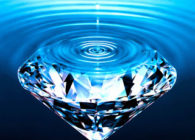As a child I was taught that anger was a bad emotion but I’ve have since come to understand that there are no bad feelings. All emotions have purpose and value as they teach us about ourselves based on how we react to external events. We assign value to each depending on how people act them out. If someone feels angry and reacts by screaming or hitting someone, it is pretty well agreed upon that that’s bad. Hence the feeling behind the behavior is labeled likewise. Keep in mind that it’s imperative to always separate the feeling from the behavior. The emotion may be appropriate to the situation but the actions that follow may not be.
GOOD ANGER: Anger is a necessary part of our existence as it alerts us to the fact that something is wrong or in need of our attention. For example, if I’m constantly annoyed at my husband, my anger may signify that I have too many expectations of him and am not accommodating enough of our differences. Becoming more aware of my arrogance and consciously changing my thoughts about him enable me to move beyond anger to a place of loving acceptance. My anger ultimately proves to be a blessing as the peace I now acquire not only benefits me but my husband as well.
We may also experience anger when we witness an injustice is occurring. Without becoming upset or irate, how would we know that we need to take action to correct it? In this regard, laws have been created by man to protect the innocent and create a fair and equitable society for everyone.
And in the event we feel threatened or unsafe, whether physically, emotionally, sexually, verbally, etc, anger prepares us for the vital fight or flight response. We either stay to correct a wrongdoing or we flee in order to keep ourselves safe.
BAD ANGER: Anger becomes problematic when it is mishandled, misdirected (at those who are undeserving) or the result of a misconception.
A popular song, Lost Boy, is one of my new top five favorites. I recently listened to it on Youtube and much to my surprise discovered that it’s performed by a lovely dark skinned young woman. I had envisioned a 14 year old Caucasian girl with a short pixie haircut. I mentioned to a friend of mine how surprised I was. “She didn’t sound black”, I stated. “What’s that supposed to mean?” she asked, clearly disturbed by my comment. “Just how are blacks supposed to sound?” She was clearly irate. “Some black singers have a very distinct kind of twang (for lack of a better descriptive term) to their voice”, I responded, “much like a Southerner might or an Aussie from down under, a Hispanic sporting a Spanish accent, and so on. Each has a unique sound to their voice that gives insight into their heritage or where they’re from.”
In this instance, my friend clearly had unresolved issues with racism, insecurity, poor self-image or some such issue. Her reaction indicated that she was not comfortable with my comment and perceived it to be derogatory. Such a perception led her to respond with anger. When one takes personal offense to what others are saying or doing or misinterprets anothers innocent actions as hostile, their anger reveals a deeper rooted issue that is causing distress to themselves. However, with serious introspection, one can determine the root cause of their indignation and thus seek an effective solution through understanding and healing.
Anger can be detrimental to our physical health as explosive or long-term anger can cause the body’s natural immune system to break down making one more susceptible to a range of diseases from high blood pressure to ulcers, cancer and more. There are also times when we use anger against ourselves, when we are so upset we may deny ourselves the chance to be happy or to take advantage of a wonderful new opportunity; to laugh or find joy in the moment or to fully express or receive love. Anger can damage our outlook on life, impede our emotional well-being, and rob us of our overall sense of enjoyment in life.
UGLY ANGER: Anger at its worst becomes ugly when it is used to hurt or offend others or cause any type of damage to a person or object. Criticism, belittling, embarrassing, ignoring, and gossiping are all expressions of anger at its worst. Acts of racism, physical violence, hate speech, betrayals are all violent forms of anger being expressed with the sole purpose of causing extreme pain or hardship to another. Intimidation, manipulation, threats and coercion all seek to gain control over another party through the use of force. Damage to nature or personal property through acts of rioting and looting or individual acts of rage are all reminders of just how ugly anger can become when it’s intent is to harm rather than to foster positive change.
To summarize: anger is neither a bad emotion nor a good one. It’s simply a messenger. When we are able to understand why we react in anger as opposed to another feeling, we can uncover the root cause of our issues, resolve them and ultimately channel our actions into creating positive change that benefits not only the self but those around us as well. Use anger to your advantage. Much good can come from doing so.
Order The Secret Side of Anger, Second Edition or The Great Truth @ http://www.pfeifferpowerseminars.com/pps1-products.html
Listen to past shows on iHeart Radio @ http://ow.ly/OADTf
Listen to my newest iHeart Radio show, BETWEEN YOU AND GOD, @ http://ow.ly/OADJK
Follow me on Facebook, Twitter, Linkedin, Pinterest, Google+



